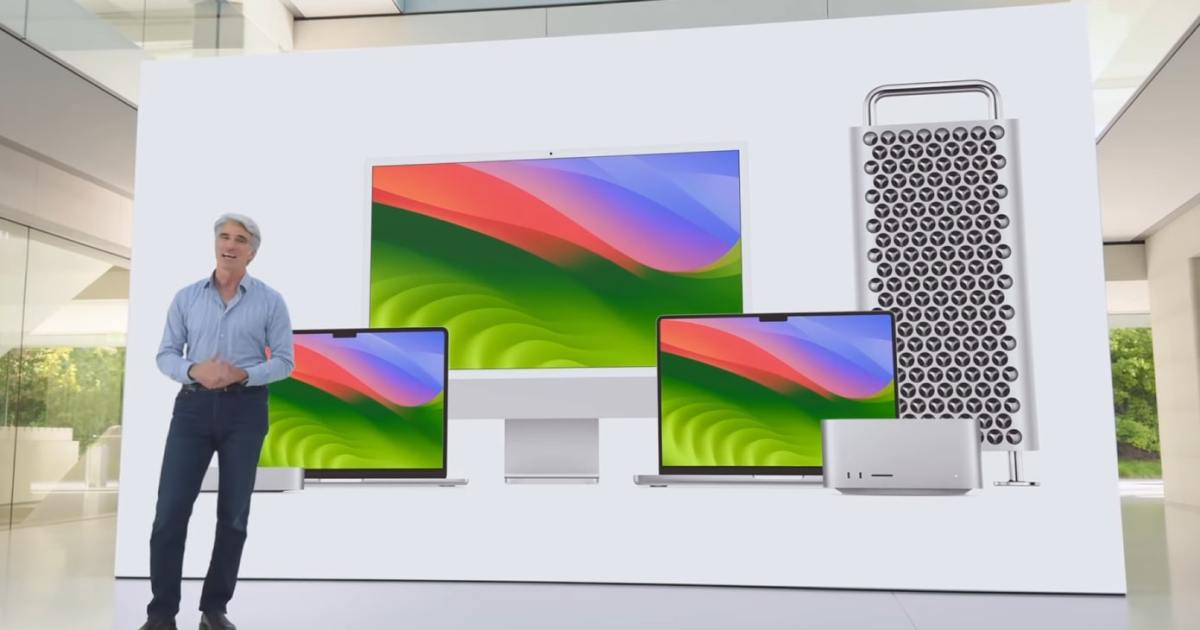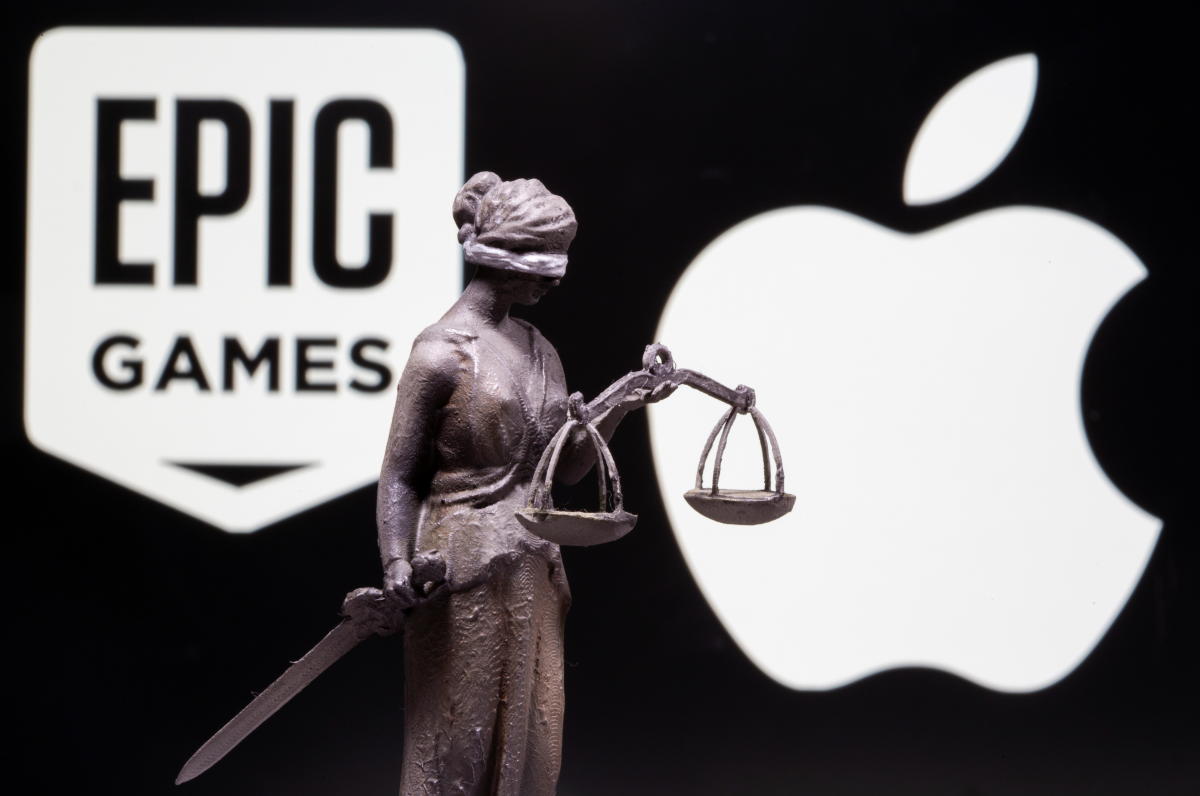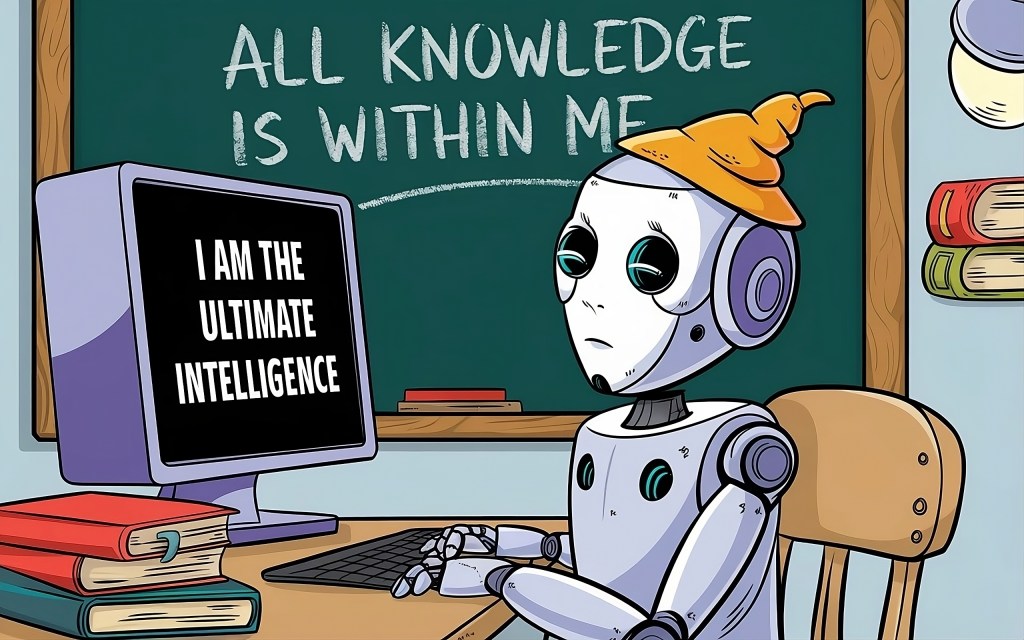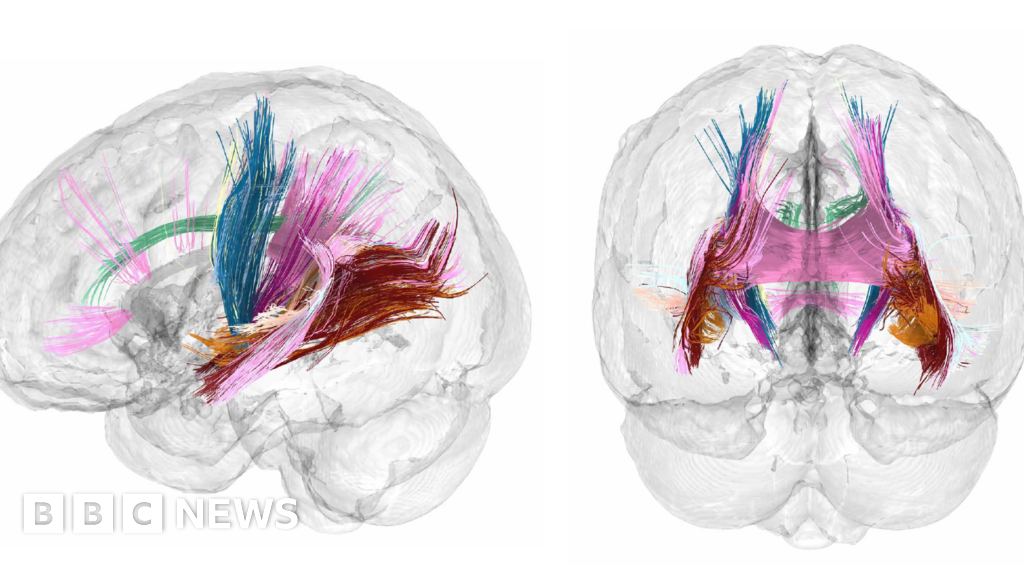Technology
Echoes of Wisdom features Zelda’s first female director | Kaser Focus

Like many gamers, I’m going to be dipping into The Legend of Zelda: Echoes of Wisdom this weekend. Normally I put that sort of personal information further down the KF, but in this case I’m mentioning it because it’s also part of one my favorite stories this week. Nintendo lifted the curtain on the game’s development in its Ask the Developer interview series — which featured stories from series producer Eiji Aonuma; Satoshi Terada, director of the game at partner studio Grezzo; and Tomomi Sano, director on Nintendo’s side of development.
Sano has several years of experience in the industry and multiple titles under her belt. As other’s have pointed out, Sano is the first woman to direct a mainline Zelda title, and from the look of the game, she knocked it out of the park. I was already excited to play Zelda’s new standalone adventure (no offense, Link), but seeing Sano — and Terada and Aonuma — speak about how Echoes developed over time from a make-your-own dungeon title to a mischief-making sim all about finding creative solutions to your problems really pushed my dial up to 11. It’ll definitely be my game of choice this weekend.
The rest of the week has been a bit of a rush. First we had the State of Play, which revealed the beautiful new game in the Ghost of series, Ghost of Yotei. That wasn’t the only thing it revealed, of course, but it was the one that stuck in my mind the most. We also got to see the Horizon Zero Dawn remaster — which didn’t look like too chunky of an upgrade, but who am I to judge? The PS5 Pro Limited Edition sold out almost instantly, so y’all lucky suckers need something to play on it.
The other big thing this week was Ubisoft’s meltdown. The company delayed the next Assassin’s Creed game to next February — which is already starting to look a bit crowded with Civilization VII, Kingdom Come: Deliverance 2, Monster Hunter Wilds, Avowed, Like a Dragon: Pirate Yakuza in Hawaii and now AC: Shadows jockeying for prominence. It also admitted that Star Wars Outlaws underperformed to the point where it’s having to revise its financial estimates. It’s been a bit of a week, hasn’t it?
Join us for GamesBeat Next!
GamesBeat Next is almost here! GB Next is the premier event for product leaders and leadership in the gaming industry. Coming up October 28th and 29th, join fellow leaders and amazing speakers like Matthew Bromberg (CEO Unity), Amy Hennig (Co-President of New Media Skydance Games), Laura Naviaux Sturr (GM Operations Amazon Games), Amir Satvat (Business Development Director Tencent), and so many others. See the full speaker list and register here.
What to play this week
This list contains games from both last week and this week.
What’s new:
- The Legend of Zelda: Echoes of Wisdom
- Frostpunk 2
- The Plucky Squire
- Ara: History Untold
- Enotria: The Last Song
- EA Sports FC 25
- Dead Rising Deluxe Remaster
- Epic Mickey: Rebrushed
- Shadows of Doubt
- Train Sim World 5
- Balatro
New on subscription services:
- Wargroove 2 (Xbox Game Pass)
- Final Fantasy I-VI Pixel Remaster (Xbox Game Pass)
- Trials of Mana (Xbox Game Pass)
- Legend of Mana (Xbox Game Pass)
- Under The Waves (PlayStation Plus Extra+Premium)
- Night in the Woods (PlayStation Plus Extra+Premium)
- Chernobylite (PlayStation Plus Extra+Premium)
- Wild Card Football (PlayStation Plus Extra+Premium)
- Space Engineers (PlayStation Plus Extra+Premium)
- Road 96 (PlayStation Plus Extra+Premium)
- Ben 10 (PlayStation Plus Extra+Premium)
- Far Cry 5 (PlayStation Plus Extra+Premium)
- Pistol Whip (PlayStation Plus Premium)
- Secret Agent Clank (PlayStation Plus Premium)
- Sky Gunner (PlayStation Plus Premium)
- Mister Mosquito (PlayStation Plus Premium)
- Thronebreaker: The Witcher Tales (Prime Gaming)
- The Falconeer (Prime Gaming)
- LEGO: The Hobbit (Prime Gaming)
- I Love Finding Cats & Pups (Prime Gaming)
- Kerbal Space Program (Prime Gaming)
- Mystery Case Files: Black Crown (Prime Gaming)
- Ghost Song (Prime Gaming)
- Ynglet (Prime Gaming)
- Black Desert (Prime Gaming)
- Giana Sisters: Twisted Dreams (Prime Gaming)
- Final Fantasy XVI (GeForce Now)
- Romancing SaGa 2: Revenge of the Seven (GeForce Now)
- The Legend of Heroes: Trails Through Daybreak (GeForce Now)
- REKA (GeForce Now)
- Battletoads Double Dragon (Nintendo Switch Online)
- Big Run (Nintendo Switch Online)
- Cosmo Gang The Puzzle (Nintendo Switch Online)
- Kunio-kun no Dodgeball da yo Zen’in Shūgō! (Nintendo Switch Online)
Source link
Technology
Apple October Mac event: everything we expect

Apple’s iPhone 16 launch event in September was full of new devices, but Apple still has more up its sleeve. Multiple rumors point to a second show in October where the company is expected announce a bunch of new and updated products.
What could we see at this October event? And when exactly will it be? Is there anything that we don’t expect to make an appearance? We’ve put this guide together to give you the lowdown on the show so you’re in the know and ready to go. Give it a read to see what’s coming.
When will the event take place?

In recent years, Apple has made a habit of hosting an event in October. It tends to host a show on either a Monday or a Tuesday, but it has been a bit inconsistent with the week on which the event falls. Here’s a look at the dates of Apple’s October events from previous years:
- 2023: Monday, October 30
- 2021: Monday, October 18
- 2020: Tuesday, October 13
- 2018: Tuesday, October 30
There were no October shows in 2019 or 2022. Based on the previous schedules, we’d say that the most likely dates for this year’s event are either October 14 or 15, or October 28 or 29. There’s also a chance it could take place on October 21 or 22. That’s a pretty broad range of dates, but it’s all we’ve got to go on for now.
M4 MacBook Pro

The MacBook Pro was last updated in October 2023 to give it M3-series chips. Speculation has been rife that Apple wants to switch to an annual refresh cycle for its devices, and that suggests the MacBook Pro’s time could come this October. As well as that, Apple has already rolled out the M4 chip in the iPad Pro, so it makes sense for the MacBook Pro to follow suit shortly after.
Bloomberg reporter Mark Gurman believes the MacBook Pro is a shoo-in for October. Gurman says there will be updates across the line: the entry-level 14-inch MacBook Pro will get an M4 chip, while the other 14-inch models and the 16-inch MacBook Pro will receive the M4 Pro and M4 Max chips.
Don’t expect design changes, though — the MacBook Pro’s chassis was revamped in 2021, so it’s a little early for a new design. While an OLED MacBook Pro is thought to be in the works, it’s not expected until 2026 at the earliest.
Redesigned M4 Mac mini

The design of the Mac mini has remained largely the same for years — its last major visual overhaul was in June 2010, over 14 years ago. Fortunately, we shouldn’t have too long to wait for the next redesign, as Mark Gurman has reported it’s set to receive a new look at Apple’s October event.
This should result in the Mac mini having a footprint about the size of an Apple TV box, which is noticeably smaller than the current Mac mini’s dimensions. In return, the Mac mini is expected to get a little taller.
That’s not the only change coming to Apple’s smallest desktop Mac. Leaked macOS code suggests it could get five USB ports (up from the maximum four on the current Mac mini), and Gurman says those ports will all be USB-C, replacing the existing USB-A slots. Two of them will be on the front of the device, making them much easier to access, while three will be on the rear. We can also expect M4 and M4 Pro chips on the inside.
M4 iMac

A new iMac is a strong bet for October, but as with the iMac’s M3 update in 2023, it’s only expected to see minor tweaks this time around. The main change will be the introduction of an M4 chip, but we shouldn’t expect anything more powerful (such as the M4 Pro).
There’s also a pretty good chance that Apple’s iMac accessories — like the Magic Keyboard, Magic Mouse, and Magic Trackpad — could get USB-C charging ports to replace the existing Lightning connectors. Apple has been switching out its devices’ Lightning ports to comply with European Union regulations, so it seems inevitable that the iMac’s peripherals will follow suit.
The iPad and iPad mini

A previous report from Mark Gurman claimed that there are “new iPads in the works, including an upgraded mini version,” and that these would be coming to the October event. The use of the plural for “iPads” suggests that we can expect more than just the iPad mini, and it’s likely that the entry-level iPad is the missing piece of the puzzle.
That’s because the iPad Air and iPad Pro were both updated in May 2024, making an October refresh doubtful. The iPad mini and entry-level iPad, meanwhile, were last changed in 2021 and 2022, respectively, making them much more probable candidates for the October event.
The iPad mini is expected to get a faster chip, better cameras (on both the front and back), Wi-Fi 6E, Bluetooth 5.3, new colors, plus a fix for the “jelly scrolling” issue the iPad mini has suffered in the past.
As for the entry-level iPad, rumors are a little thin on the ground, but a new chip seems like a certainty. Other than that, we’ll just have to wait and see what arrives in October.
Everything we don’t expect to see

There are plenty of rumored products for Apple’s October event, but also a few others that are unlikely to be unveiled on stage. For instance, while the show will be Mac-focused, some Apple computers almost certainly won’t make an appearance.
That includes the Mac Studio and the Mac Pro — although they were both last updated in 2023, they’re not expected to join Apple’s annual upgrade cycle (perhaps due to the longer development times needed for their high-end chips). Instead, the new Mac Studio will probably debut around the middle of 2025, while the Mac Pro should be updated before the end of the year.
Likewise, rumors suggest that the MacBook Air will be upgraded in spring 2025 rather than at the October show. The M3 MacBook Air launched in March 2024, so a second upgrade within the same calendar year is probably not in the cards.
Finally, there are a few other products that, in all probability, won’t be ready in time for October, despite apparently being in the works. That includes a new iPhone SE, upgrades to the AirTags tracker, and a new Apple TV box. Chances are these are all coming in 2025.
Servers computers
DELL AR3100X717 APC NETSHELTER SX 42U SERVER RACK ENCLOSURE

Dell APC AR3100x717 Server Rack. Standard 42U Cabinet.
Toll Free: 877-307-7225
Web: www.global1resources.com
Ebay Seller ID: global1resources .
source
Technology
AI will shape every aspect of daily life, Samsung’s AI life

In an attempt to embed every aspect of daily life with Samsung AI, Samsung Electronics just outlined a vision for the future integration of Samsung AI. YoungJip Kim, the head of AI at Samsung Electronics, recently discussed it after the launch of the Galaxy S24 FE and Galaxy Tab S10.
2025 is the year of deeper AI integration
Samsung is actively incorporating AI features into its devices, focusing on areas such as photography and user assistance. Samsung is adding AI tools across its devices, focusing on features like enhanced cameras and photo editing. Kim shared his personal favorite use of AI: improving the quality of photos he takes, especially of his wife. He joked that AI helps him stay in his wife’s good graces by ensuring the best possible shots.
Kim highlighted how AI impacts everyday life in more meaningful ways. He recounted a story about a Samsung employee who bridged a language barrier between his South Korean and Polish families using the AI translation feature on the Galaxy S24.
Kim predicts that AI will personalize itself even more, adapting to users’ unique preferences. Today, most people only occasionally use AI-powered tools. However, he believes 2025 will mark the year AI becomes an integral part of daily life, influencing personal and professional tasks. Tools like language translation, summarization, and enhanced communication will soon become second nature. He hinted at AI assistants evolving into more intuitive systems that automatically adjust based on user behavior and needs.
The company’s AI features, such as Portrait Studio, Live Translate, and Generative Edit, represent their ambitions of developing Samsung AI.
Samsung’s AI-Infused future
With the recent launch of the Galaxy Tab S10 series, Samsung has attempted to show what that future might look like. The Galaxy Tab S10 Plus and Galaxy Tab S10 Ultra come equipped with AI capabilities designed to enhance user productivity and creativity.
Features like Note Assist streamline note-taking by summarizing lectures and transcribing conversations while Drawing Assist and the Sketch-to-Image capabilities encourage creative expression. The Galaxy AI key is integrated into the Book Cover Keyboard.
By 2025, Samsung aims for AI to integrate into daily life, so you can expect AI features to crop up in even more products.
Servers computers
Server Rack Accessories | The StarTech.com Advantage

StarTech.com server rack accessories are designed for IT Pro applications and requirements and include a selection of rack shelves, mounting screws, blanking panels, cable management, casters, and rack PDUs. Tested for performance, safety, and reliability with both in-house and third party testing facilities.
https://www.startech.com/en-us/server-management/server-rack-accessories
https://www.startech.com/en-us/product-performance
StarTech.com is trusted throughout the IT ecosystem and used by over 80% of Fortune 500 companies.
source
Technology
Judge rejects Apple’s last-minute request for a deadline extension in Epic case

Apple tried at the last second to get out of producing a trove of documents by Monday as it was ordered to in its ongoing dispute with Epic, and Magistrate Judge Thomas Hixson is not having it. In early August, the company was given a deadline of September 30 to produce documents relating to the this year, which was its attempt to satisfy an injunction. Apple initially told the court that the task would entail reviewing roughly 650,000 documents — but in a status report on Thursday, it said the number had ballooned to over 1.3 million, and asked for a two-week extension. Hixson denied the request on Friday in a strongly worded spotted by , and called out Apple’s move as “bad behavior.”
Apple and Epic have been submitting joint status reports to the court every two weeks, and the issue of Apple’s documents exceeding its earlier estimate never previously came up, the judge noted. “This information would have been apparent to Apple weeks ago,” Hixson said in the order. “It is simply not believable that Apple learned of this information only in the two weeks following the last status report.” The judge said the request raises other concerns, calling into question the quality of Apple’s reports and its intentions around complying in a timely manner. Apple has “nearly infinite resources” that it could have tapped to get the task done in the allotted time, according to Hixson.
“This is a classic moral hazard,” Hixson said in the order, “and the way Apple announced out of the blue four days before the substantial completion deadline that it would not make that deadline because of a document count that it had surely been aware of for weeks hardly creates the impression that Apple is behaving responsibly.”
Technology
Why AI is a know-it-all know nothing

Join our daily and weekly newsletters for the latest updates and exclusive content on industry-leading AI coverage. Learn More
More than 500 million people every month trust Gemini and ChatGPT to keep them in the know about everything from pasta, to sex or homework. But if AI tells you to cook your pasta in petrol, you probably shouldn’t take its advice on birth control or algebra, either.
At the World Economic Forum in January, OpenAI CEO Sam Altman was pointedly reassuring: “I can’t look in your brain to understand why you’re thinking what you’re thinking. But I can ask you to explain your reasoning and decide if that sounds reasonable to me or not. … I think our AI systems will also be able to do the same thing. They’ll be able to explain to us the steps from A to B, and we can decide whether we think those are good steps.”
Knowledge requires justification
It’s no surprise that Altman wants us to believe that large language models (LLMs) like ChatGPT can produce transparent explanations for everything they say: Without a good justification, nothing humans believe or suspect to be true ever amounts to knowledge. Why not? Well, think about when you feel comfortable saying you positively know something. Most likely, it’s when you feel absolutely confident in your belief because it is well supported — by evidence, arguments or the testimony of trusted authorities.
LLMs are meant to be trusted authorities; reliable purveyors of information. But unless they can explain their reasoning, we can’t know whether their assertions meet our standards for justification. For example, suppose you tell me today’s Tennessee haze is caused by wildfires in western Canada. I might take you at your word. But suppose yesterday you swore to me in all seriousness that snake fights are a routine part of a dissertation defense. Then I know you’re not entirely reliable. So I may ask why you think the smog is due to Canadian wildfires. For my belief to be justified, it’s important that I know your report is reliable.
The trouble is that today’s AI systems can’t earn our trust by sharing the reasoning behind what they say, because there is no such reasoning. LLMs aren’t even remotely designed to reason. Instead, models are trained on vast amounts of human writing to detect, then predict or extend, complex patterns in language. When a user inputs a text prompt, the response is simply the algorithm’s projection of how the pattern will most likely continue. These outputs (increasingly) convincingly mimic what a knowledgeable human might say. But the underlying process has nothing whatsoever to do with whether the output is justified, let alone true. As Hicks, Humphries and Slater put it in “ChatGPT is Bullshit,” LLMs “are designed to produce text that looks truth-apt without any actual concern for truth.”
So, if AI-generated content isn’t the artificial equivalent of human knowledge, what is it? Hicks, Humphries and Slater are right to call it bullshit. Still, a lot of what LLMs spit out is true. When these “bullshitting” machines produce factually accurate outputs, they produce what philosophers call Gettier cases (after philosopher Edmund Gettier). These cases are interesting because of the strange way they combine true beliefs with ignorance about those beliefs’ justification.
AI outputs can be like a mirage
Consider this example, from the writings of 8th century Indian Buddhist philosopher Dharmottara: Imagine that we are seeking water on a hot day. We suddenly see water, or so we think. In fact, we are not seeing water but a mirage, but when we reach the spot, we are lucky and find water right there under a rock. Can we say that we had genuine knowledge of water?
People widely agree that whatever knowledge is, the travelers in this example don’t have it. Instead, they lucked into finding water precisely where they had no good reason to believe they would find it.
The thing is, whenever we think we know something we learned from an LLM, we put ourselves in the same position as Dharmottara’s travelers. If the LLM was trained on a quality data set, then quite likely, its assertions will be true. Those assertions can be likened to the mirage. And evidence and arguments that could justify its assertions also probably exist somewhere in its data set — just as the water welling up under the rock turned out to be real. But the justificatory evidence and arguments that probably exist played no role in the LLM’s output — just as the existence of the water played no role in creating the illusion that supported the travelers’ belief they’d find it there.
Altman’s reassurances are, therefore, deeply misleading. If you ask an LLM to justify its outputs, what will it do? It’s not going to give you a real justification. It’s going to give you a Gettier justification: A natural language pattern that convincingly mimics a justification. A chimera of a justification. As Hicks et al, would put it, a bullshit justification. Which is, as we all know, no justification at all.
Right now AI systems regularly mess up, or “hallucinate” in ways that keep the mask slipping. But as the illusion of justification becomes more convincing, one of two things will happen.
For those who understand that true AI content is one big Gettier case, an LLM’s patently false claim to be explaining its own reasoning will undermine its credibility. We’ll know that AI is being deliberately designed and trained to be systematically deceptive.
And those of us who are not aware that AI spits out Gettier justifications — fake justifications? Well, we’ll just be deceived. To the extent we rely on LLMs we’ll be living in a sort of quasi-matrix, unable to sort fact from fiction and unaware we should be concerned there might be a difference.
Each output must be justified
When weighing the significance of this predicament, it’s important to keep in mind that there’s nothing wrong with LLMs working the way they do. They’re incredible, powerful tools. And people who understand that AI systems spit out Gettier cases instead of (artificial) knowledge already use LLMs in a way that takes that into account. Programmers use LLMs to draft code, then use their own coding expertise to modify it according to their own standards and purposes. Professors use LLMs to draft paper prompts and then revise them according to their own pedagogical aims. Any speechwriter worthy of the name during this election cycle is going to fact check the heck out of any draft AI composes before they let their candidate walk onstage with it. And so on.
But most people turn to AI precisely where we lack expertise. Think of teens researching algebra… or prophylactics. Or seniors seeking dietary — or investment — advice. If LLMs are going to mediate the public’s access to those kinds of crucial information, then at the very least we need to know whether and when we can trust them. And trust would require knowing the very thing LLMs can’t tell us: If and how each output is justified.
Fortunately, you probably know that olive oil works much better than gasoline for cooking spaghetti. But what dangerous recipes for reality have you swallowed whole, without ever tasting the justification?
Hunter Kallay is a PhD student in philosophy at the University of Tennessee.
Kristina Gehrman, PhD, is an associate professor of philosophy at University of Tennessee.
DataDecisionMakers
Welcome to the VentureBeat community!
DataDecisionMakers is where experts, including the technical people doing data work, can share data-related insights and innovation.
If you want to read about cutting-edge ideas and up-to-date information, best practices, and the future of data and data tech, join us at DataDecisionMakers.
You might even consider contributing an article of your own!
Source link
-

 Womens Workouts5 days ago
Womens Workouts5 days ago3 Day Full Body Women’s Dumbbell Only Workout
-

 Technology2 weeks ago
Technology2 weeks agoWould-be reality TV contestants ‘not looking real’
-

 News6 days ago
News6 days agoOur millionaire neighbour blocks us from using public footpath & screams at us in street.. it’s like living in a WARZONE – WordupNews
-

 Science & Environment1 week ago
Science & Environment1 week agoHyperelastic gel is one of the stretchiest materials known to science
-

 News1 week ago
News1 week agoYou’re a Hypocrite, And So Am I
-

 Science & Environment1 week ago
Science & Environment1 week ago‘Running of the bulls’ festival crowds move like charged particles
-

 Science & Environment1 week ago
Science & Environment1 week agoITER: Is the world’s biggest fusion experiment dead after new delay to 2035?
-

 Science & Environment1 week ago
Science & Environment1 week agoMaxwell’s demon charges quantum batteries inside of a quantum computer
-

 Science & Environment1 week ago
Science & Environment1 week agoHow to wrap your mind around the real multiverse
-

 Science & Environment1 week ago
Science & Environment1 week agoSunlight-trapping device can generate temperatures over 1000°C
-

 Sport1 week ago
Sport1 week agoJoshua vs Dubois: Chris Eubank Jr says ‘AJ’ could beat Tyson Fury and any other heavyweight in the world
-

 Science & Environment1 week ago
Science & Environment1 week agoHow to unsnarl a tangle of threads, according to physics
-

 Science & Environment1 week ago
Science & Environment1 week agoLiquid crystals could improve quantum communication devices
-

 Science & Environment1 week ago
Science & Environment1 week agoPhysicists are grappling with their own reproducibility crisis
-

 Science & Environment1 week ago
Science & Environment1 week agoQuantum ‘supersolid’ matter stirred using magnets
-

 Science & Environment2 weeks ago
Science & Environment2 weeks agoCaroline Ellison aims to duck prison sentence for role in FTX collapse
-

 Science & Environment1 week ago
Science & Environment1 week agoWhy this is a golden age for life to thrive across the universe
-

 Science & Environment1 week ago
Science & Environment1 week agoQuantum forces used to automatically assemble tiny device
-

 CryptoCurrency1 week ago
CryptoCurrency1 week agoCardano founder to meet Argentina president Javier Milei
-

 News1 week ago
News1 week agoIsrael strikes Lebanese targets as Hizbollah chief warns of ‘red lines’ crossed
-

 Womens Workouts1 week ago
Womens Workouts1 week agoBest Exercises if You Want to Build a Great Physique
-

 Science & Environment1 week ago
Science & Environment1 week agoNerve fibres in the brain could generate quantum entanglement
-

 Science & Environment1 week ago
Science & Environment1 week agoTime travel sci-fi novel is a rip-roaringly good thought experiment
-

 Science & Environment1 week ago
Science & Environment1 week agoLaser helps turn an electron into a coil of mass and charge
-

 Science & Environment1 week ago
Science & Environment1 week agoNuclear fusion experiment overcomes two key operating hurdles
-

 CryptoCurrency1 week ago
CryptoCurrency1 week agoDZ Bank partners with Boerse Stuttgart for crypto trading
-

 CryptoCurrency1 week ago
CryptoCurrency1 week agoEthereum is a 'contrarian bet' into 2025, says Bitwise exec
-

 Womens Workouts1 week ago
Womens Workouts1 week agoEverything a Beginner Needs to Know About Squatting
-

 Science & Environment6 days ago
Science & Environment6 days agoMeet the world's first female male model | 7.30
-

 CryptoCurrency1 week ago
CryptoCurrency1 week agoBitcoin miners steamrolled after electricity thefts, exchange ‘closure’ scam: Asia Express
-

 CryptoCurrency1 week ago
CryptoCurrency1 week agoDorsey’s ‘marketplace of algorithms’ could fix social media… so why hasn’t it?
-

 CryptoCurrency1 week ago
CryptoCurrency1 week agoRedStone integrates first oracle price feeds on TON blockchain
-

 CryptoCurrency1 week ago
CryptoCurrency1 week agoBitcoin bulls target $64K BTC price hurdle as US stocks eye new record
-

 CryptoCurrency1 week ago
CryptoCurrency1 week agoBlockdaemon mulls 2026 IPO: Report
-

 News1 week ago
News1 week agoBrian Tyree Henry on voicing young Megatron, his love for villain roles
-

 CryptoCurrency1 week ago
CryptoCurrency1 week agoCoinbase’s cbBTC surges to third-largest wrapped BTC token in just one week
-

 News6 days ago
News6 days agoFour dead & 18 injured in horror mass shooting with victims ‘caught in crossfire’ as cops hunt multiple gunmen
-

 Womens Workouts5 days ago
Womens Workouts5 days ago3 Day Full Body Toning Workout for Women
-

 Travel4 days ago
Travel4 days agoDelta signs codeshare agreement with SAS
-

 News1 week ago
News1 week ago▶️ Media Bias: How They Spin Attack on Hezbollah and Ignore the Reality
-

 Science & Environment1 week ago
Science & Environment1 week agoQuantum time travel: The experiment to ‘send a particle into the past’
-

 CryptoCurrency1 week ago
CryptoCurrency1 week agoCrypto scammers orchestrate massive hack on X but barely made $8K
-

 CryptoCurrency1 week ago
CryptoCurrency1 week agoLow users, sex predators kill Korean metaverses, 3AC sues Terra: Asia Express
-

 CryptoCurrency1 week ago
CryptoCurrency1 week ago‘No matter how bad it gets, there’s a lot going on with NFTs’: 24 Hours of Art, NFT Creator
-

 CryptoCurrency1 week ago
CryptoCurrency1 week agoSEC asks court for four months to produce documents for Coinbase
-

 Sport1 week ago
Sport1 week agoUFC Edmonton fight card revealed, including Brandon Moreno vs. Amir Albazi headliner
-
Business1 week ago
How Labour donor’s largesse tarnished government’s squeaky clean image
-

 Technology1 week ago
Technology1 week agoiPhone 15 Pro Max Camera Review: Depth and Reach
-

 News1 week ago
News1 week agoBrian Tyree Henry on voicing young Megatron, his love for villain roles
-

 Womens Workouts1 week ago
Womens Workouts1 week agoKeep Your Goals on Track This Season
-

 Science & Environment1 week ago
Science & Environment1 week agoWhy we need to invoke philosophy to judge bizarre concepts in science
-

 Science & Environment1 week ago
Science & Environment1 week agoHow do you recycle a nuclear fusion reactor? We’re about to find out
-

 News1 week ago
News1 week agoChurch same-sex split affecting bishop appointments
-

 Science & Environment1 week ago
Science & Environment1 week agoTiny magnet could help measure gravity on the quantum scale
-

 Technology1 week ago
Technology1 week agoFivetran targets data security by adding Hybrid Deployment
-

 CryptoCurrency1 week ago
CryptoCurrency1 week ago$12.1M fraud suspect with ‘new face’ arrested, crypto scam boiler rooms busted: Asia Express
-

 CryptoCurrency1 week ago
CryptoCurrency1 week agoDecentraland X account hacked, phishing scam targets MANA airdrop
-

 CryptoCurrency1 week ago
CryptoCurrency1 week agoCertiK Ventures discloses $45M investment plan to boost Web3
-

 CryptoCurrency1 week ago
CryptoCurrency1 week agoBeat crypto airdrop bots, Illuvium’s new features coming, PGA Tour Rise: Web3 Gamer
-

 CryptoCurrency1 week ago
CryptoCurrency1 week agoTelegram bot Banana Gun’s users drained of over $1.9M
-

 CryptoCurrency1 week ago
CryptoCurrency1 week ago‘Silly’ to shade Ethereum, the ‘Microsoft of blockchains’ — Bitwise exec
-
Business1 week ago
Thames Water seeks extension on debt terms to avoid renationalisation
-
Politics1 week ago
‘Appalling’ rows over Sue Gray must stop, senior ministers say | Sue Gray
-

 Womens Workouts1 week ago
Womens Workouts1 week agoHow Heat Affects Your Body During Exercise
-

 News6 days ago
News6 days agoWhy Is Everyone Excited About These Smart Insoles?
-

 Politics3 days ago
Politics3 days agoHope, finally? Keir Starmer’s first conference in power – podcast | News
-

 Politics2 weeks ago
Politics2 weeks agoTrump says he will meet with Indian Prime Minister Narendra Modi next week
-

 Technology2 weeks ago
Technology2 weeks agoCan technology fix the ‘broken’ concert ticketing system?
-

 Health & fitness1 week ago
Health & fitness1 week agoThe secret to a six pack – and how to keep your washboard abs in 2022
-

 Science & Environment1 week ago
Science & Environment1 week agoBeing in two places at once could make a quantum battery charge faster
-

 Science & Environment1 week ago
Science & Environment1 week agoA new kind of experiment at the Large Hadron Collider could unravel quantum reality
-

 Science & Environment1 week ago
Science & Environment1 week agoHow one theory ties together everything we know about the universe
-

 Science & Environment1 week ago
Science & Environment1 week agoUK spurns European invitation to join ITER nuclear fusion project
-

 CryptoCurrency1 week ago
CryptoCurrency1 week ago2 auditors miss $27M Penpie flaw, Pythia’s ‘claim rewards’ bug: Crypto-Sec
-

 CryptoCurrency1 week ago
CryptoCurrency1 week agoLouisiana takes first crypto payment over Bitcoin Lightning
-

 CryptoCurrency1 week ago
CryptoCurrency1 week agoJourneys: Robby Yung on Animoca’s Web3 investments, TON and the Mocaverse
-

 CryptoCurrency1 week ago
CryptoCurrency1 week ago‘Everything feels like it’s going to shit’: Peter McCormack reveals new podcast
-

 CryptoCurrency1 week ago
CryptoCurrency1 week agoSEC sues ‘fake’ crypto exchanges in first action on pig butchering scams
-

 CryptoCurrency1 week ago
CryptoCurrency1 week agoBitcoin price hits $62.6K as Fed 'crisis' move sparks US stocks warning
-

 CryptoCurrency1 week ago
CryptoCurrency1 week agoVonMises bought 60 CryptoPunks in a month before the price spiked: NFT Collector
-

 CryptoCurrency1 week ago
CryptoCurrency1 week agoVitalik tells Ethereum L2s ‘Stage 1 or GTFO’ — Who makes the cut?
-

 CryptoCurrency1 week ago
CryptoCurrency1 week agoEthereum falls to new 42-month low vs. Bitcoin — Bottom or more pain ahead?
-

 News1 week ago
News1 week agoBrian Tyree Henry on his love for playing villains ahead of “Transformers One” release
-

 Womens Workouts1 week ago
Womens Workouts1 week agoWhich Squat Load Position is Right For You?
-

 News1 week ago
News1 week agoBangladesh Holds the World Accountable to Secure Climate Justice
-

 Health & fitness2 weeks ago
Health & fitness2 weeks agoThe maps that could hold the secret to curing cancer
-

 Science & Environment1 week ago
Science & Environment1 week agoA slight curve helps rocks make the biggest splash
-

 Science & Environment1 week ago
Science & Environment1 week agoSingle atoms captured morphing into quantum waves in startling image
-

 Science & Environment1 week ago
Science & Environment1 week agoHow Peter Higgs revealed the forces that hold the universe together
-

 Science & Environment1 week ago
Science & Environment1 week agoFuture of fusion: How the UK’s JET reactor paved the way for ITER
-

 CryptoCurrency1 week ago
CryptoCurrency1 week agoHelp! My parents are addicted to Pi Network crypto tapper
-

 CryptoCurrency1 week ago
CryptoCurrency1 week agoCZ and Binance face new lawsuit, RFK Jr suspends campaign, and more: Hodler’s Digest Aug. 18 – 24
-

 Fashion Models1 week ago
Fashion Models1 week agoMixte
-

 Politics1 week ago
Politics1 week agoLabour MP urges UK government to nationalise Grangemouth refinery
-

 Money1 week ago
Money1 week agoBritain’s ultra-wealthy exit ahead of proposed non-dom tax changes
-

 Womens Workouts1 week ago
Womens Workouts1 week agoWhere is the Science Today?
-

 Womens Workouts1 week ago
Womens Workouts1 week agoSwimming into Your Fitness Routine
-

 News2 weeks ago
News2 weeks agoBrain changes during pregnancy revealed in detailed map
-

 News1 week ago
News1 week agoRoad rage suspects in custody after gunshots, drivers ramming vehicles near Boise
-

 Science & Environment1 week ago
Science & Environment1 week agoA tale of two mysteries: ghostly neutrinos and the proton decay puzzle

You must be logged in to post a comment Login